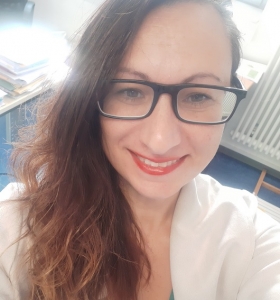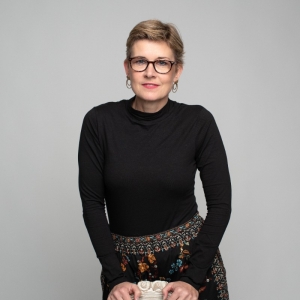Upskilling, Reskilling and Newskilling Teachers for the Metaverse of Future Education
Eleni Armaou, Student Oriented Services (SOS) and Additional Learning Needs (ALN) Coordinator
Metropolitan School of Frankfurt
Transferable concepts from the MIT Sloan and HBR World of Business
Last month, as every month, I indulged myself in reading the HBR and MIT Sloan Management, which apart from strictly and purely business journals, are really incubators of culture organisation ideas, concepts and deep market, finance, business related research.
Education, business world and society do not operate in silos: we are directly and increasingly connected with business research and business ideas that got in motion exempli gratia, Amazon, the Facebook Metaverse, social media trends, all those developments are influencing our lives as citizens, netizens ( online citizens), parents and teachers.We have, therefore, the opportunity and the duty to explore, know and eventually control ( to the extent possible) the developments in the educational metaverse which will be here sooner or later.
Where do we start from? We prepare ourselves, by reading, researching and most crucially, upskilling: supercharging our skills from the fundamental direct instructional tools and skill sets to more future related skills which will become sine qua non skills in the future ( either metaverselly or not).
MIT Sloan Management Review and Professor Katherine C. Kellogg in her article (2021) Workplace Hierarchies Matter in Skill Transformation argue that there are three (3) main types of upskilling initiatives: Upskilling, Reskilling and Newskilling. Let us look at their business definition.
Upskilling
Professor Kellogg defines it as “initiatives that target employees who need additional technical training to remain relevant and continue to deliver value. Leaders can personalise learning for these employees by providing peer-to-peer training in new technologies and related work processes”.
For educators, upskilling would mean, for example, peer learning walk-ins in classrooms, peer discussion for conflict resolution with specific conflict resolution protocols, direct instruction videos reviewing and roundtables for tech in education.
In the world of learning support and inclusive education, this becomes particularly important as schools have to build effective and research -based RTI Systems ( Response to Intervention ) in order to manage Student Referrals, either for social, behavioural, counselling and mental health issues or for learning problems. RTI protocols in schools are vital and skills related to RTi are crucial: learn how to use a learning intervention with:
1. Effectiveness
2. Fidelity
3. Validity
MTSS systems ( Multi-Tiered Support Systems) are primarily based on very good skill building of educators who need to have a range of skills, from investigation skills ( e.g. what is the learning problem? Or what is the system’s problem in this case? ) to deep self-assessment strategies.
Reskilling
‘’As AI-Artificial intelligence analytics and technology and Robotics automate many existing jobs, the workers who formerly did those jobs will need to LEARN entirely new skills rather than merely add to their current skill sets’’ notes Prof. Kellogg. Let us imagine educators and students in a metaverse classroom: what new classroom management skills will be crucial? How do we handle and remediate cyberbullying and what justice restorative strategies we have to use? What mental health issues should we anticipate in a metaversed classroom ? And how do we prepare for them? The answer is research, reskilling and self-assessment.
A future-ready school with future-ready educators calls for skills, in the areas of:
1. IT and coding ( for ICT Teachers)
2. Metaverse social patterns, behaviours and Psychology of the metaverse netizens (for all teachers)
3. Mitigating Cyber Bullying Skills ( for pastoral care officers and school counsellors)
4. Knowledge and skills on how to support in mental health crisis ( egain for support staff and school counsellors)
We have not fully grasped what a METAVERSED school environment will look like and feel like and frankly, it is much better and will prove more effective, if we prepare ourselves. Society was not, and to a large extent still is not, ready for the consequences of social media ( think of Tik Tok trends, Facebook and so forth) on mental health of adults and teenagers alike.
Newskilling
‘’When corporate leaders adopt new technologies that automate various kinds of work, some jobs and tasks are eliminated while others emerge. Many new roles involve technologies that require considerable work to develop, implement, maintain, and change over time’’.
Change in school culture is required and, as in organisational culture -related research, it means addressing underlying beliefs, artefacts ( mission statements) and instructional behavioural elements of educators.
Change on how you accept change is also another equally fundamental newskilling aspect of educators, parents and students.
Equally importantly, if not more, we need to support teachers in any potential mental health difficulties they face, in our rapidly changing world. Our times are similar to medieval times, as we are between an old world and moving to the A New one. As in all historical phases, our times are brimming with signs of things and concepts to be born. As we are waiting, we should also prepare with resilience, perseverance and future-related training, while passing the threshold of conviction that continuous research and training will make us, if not better educators, at least, prepared.
Eleni Armaou studied Psychology, Pedagogy and Philosophy ( major in Educational Psychology) and holds a MA in Special Educational Needs from the University of Leeds, UK. She has worked in IB Schools in Istanbul, Stuttgart, and Frankfurt and is now the SOS, ALN and Counselling Coordinator and Secondary CPO, at the Metropolitan School of Frankfurt, in Germany. Eleni is passionate about AI, Robotics, Space Travel, Quantum Physics as well as Human Psychology, Inclusive Education, Leadership and Management Studies, Negotiation Skills, CRISIS Management and Conflict Resolution.
She is a Member of ECIS SEN/Learning Support SIG and content creator for the LS/SEN SIG page. Website: special education and inclusive education armaou@msf.education
Student Oriented Services ( SOS) and Additional Learning Needs (ALN) Coordinator, Metropolitan School of Frankfurt
References and Sources:
1. Image Source: https://www.searchenginejournal.com/nfts-metaverse-marketing-guide/427528/
2. Katherine Kellogg (2021) Workplace Hierarchies Matter in Skill Transformation. MIT Sloan Management Review Journal
3. The Future-Proof Organisation Harvard Business Review Journal -September/October 2021
What do you think about the points raised in this post? We’d love to have your thoughts below.

ABOUT THE AUTHOR
Eleni Armaou studied Psychology, Pedagogy and Philosophy ( major in Educational Psychology) and holds a MA in Special Educational Needs from the University of Leeds, UK. She has worked in IB Schools in Istanbul, Stuttgart, and Frankfurt and is now the SOS, ALN and Counselling Coordinator and Secondary CPO, at the Metropolitan School of Frankfurt, in Germany.
Eleni is passionate about AI, Robotics, Space Travel, Quantum Physics as well as Human Psychology, Inclusive Education, Leadership and Management Studies, Negotiation Skills, CRISIS Management and Conflict Resolution.
She is a Member of ECIS SEN/Learning Support SIG and content creator for the LS/SEN SIG page.
Website: special education and inclusive education
Student Oriented Services ( SOS) and Additional Learning Needs
(ALN) Coordinator, Metropolitan School of Frankfurt
She is a Member of ECIS SEN/Learning Support SIG. Visit the website here.




